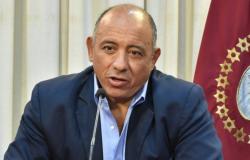
A ghost haunts Europe: the ghost of the extreme right. Will pro-European parties unite to resist this advance? Can these growing parties lead the European Union? These are some of the questions left by the European Parliament elections last night, in which the spaces of the left, social democrats and center they lost positions before conservative and “Euroskeptic” groups. On the other side of the Atlantic, the Argentine Government experienced these results with mixed feelings. Libertarians speak of a “Milei effect”. However, in the corridors of diplomacy, political caution.
He European Parliament It is the sovereign body of the European Union, key in the political decisions of that continental bloc. The Europeans voted last night to renew the entire body, made up of 720 seats. The results showed an advance of the parties and political families of the extreme right, ultranationalists and “eurosceptics”. They are conservative groups, which put the European project in crisis, question environmental policies and immigration. However, center alliances still retain the majority. If agreements are reached, they will be able to maintain political control of that international society.
In Argentina the European election was closely followed. Milei travels to Italy on Wednesday, invited by Giorgia Melonipresident of Italy, to the Summit of Group of Seven (G7) that will be done in that country. The president evaluates that the political context in Europe offers a more comfortable setting for his political profile. Last night he activated his official X account to celebrate the triumph of the right in the European Union elections.
After comings and goingsthe President decided that he will go to the G7 meeting which will take place between Thursday and Saturday in . It is a summit that brings together the most powerful political leaders in the West. The Heads of State and Government of USA, Italy, France, Germany, United Kingdom, Canada and Japan. With the added bonus that this year he was summoned by none other than the Pope Francisco. The Argentine president feels emboldened by the triumph of the extreme right in Europe and will show it off on his trip to Bari.
In La Libertad Avanza they talk about a “Milei effect”. They assume that the phenomenon of the libertarian leader is global and that the rise of his figure drives the growth of leaders who share his ideas. The President echoed publications that confirm this hypothesis. “The free world triumphs! “Europe follows the path of Argentina and the parties that defend life, liberty and private property are strengthened,” wrote the libertarian legislator. Nahuel Sotelo and Milei retweeted it.
For his part, the Head of State also reposted the comment of Agustín RomoBuenos Aires deputy and liberal reference: “Europe said NO to the 2030 Agenda. We celebrate it deeply.” In addition, he retweeted a publication from the libertarian Austrian School of Economics account, with which he regularly interacts. “Milei effect in Europe, crushing defeat of the left”, celebrated that user and earned the reaction of the President.
With the same logic, he wrote a tweet to questionagain, to his Spanish counterpart, Pedro Sanchez. “Claim to royalty… It couldn’t turn out well in any way, look at the background at the end of the video… there were signs that the red guy had not seen and so he did another piece of paper“wrote the Head of State when sharing a post in which Sánchez experiences a tense moment with King Felipe VI.
Milei understands that her figure gains international popularity and it becomes a kind of mirror in which Europe looks at itself today. Outside of libertarian militancy, in the diplomatic world other categories of analysis apply. In the San Martín Palace, headquarters of the Chancellery, they observe that the European Parliament elections predict a uncertain scenario for the relationship of the European Union with Argentina.
He new balance of power in Europe does not facilitate the way for the point of greatest interest that Argentina has today: the approval of the European Union Mercosur Agreement. It is a treaty that promotes trade and investment between both blocs, whose discussions began four decades ago. This political scenario emboldens Milei’s figure, but removes the possibility that the agreement with the EU has the green light.
He shock biggest of the elections in the European Parliament was in the two main powers of the bloc. The far-right party of Marine Le Pen razed in France and slapped Emmanuel Macron. The French president leads the European coalition Renew Europe, which lost 20 seats. Le Pen’s victory made Identity and Democracy, the alliance that he leads together with the Italian Matteo Salviniadd 11 MEPs and reach 60 seats.
In response, Macron announced the decision to dissolve the National Assembly (the French Legislative Branch) and summoned early legislative elections. The first round will take place on June 30 and the runoff on July 7. France has a system semi-presidential where the Executive Branch is two-headed. He president (Macron) is elected directly by the people, has a fixed five-year mandate, and exercises the role of Head of state. On the other hand, the Prime Minister occupies the task of Goverment’s headis appointed by the President with the approval of the National Assembly, and the duration of his term depends on the majorities in parliament or the confidence of the Head of State.
This position is currently held by Gabriel Attal, a leader close to Macron. Furthermore, he is friend of Ian Sielecki, Argentine ambassador in Paris. After the defeat in the European elections, the French president seeks to change the configuration of the National Assembly to legitimize your management. The play is risky. If Le Pen’s party prevails and has enough seats, the Head of State can lose political control of parliament. In that case, the opposition will force the appointment of a like-minded Prime Minister. It would be a scenario of cohabitationwhere the Head of Government would be from a party opposite Macron’s.
Milei had planned a bilateral at the Elysée Palace on June 19. However, he decided cancel it. He will return to Argentina after the G7 and will return to Europe on the 21st of this month to visit Germany and Spain. In the heat of the results of last night’s elections, the President you will avoid a photo that may be uncomfortable today. Coincidence or strategic decision?
In Germanythe other reference of the Old Continent, the chancellor Olaf Scholz also suffered a hard defeat. Teutonic conservative forces gained positions in the European chamber. The same situation occurred in Spainwhere he People’s Party He won by 4% of the votes against the socialist alliance led by the president Pedro Sanchez. In Belgiumthe victory of the right-wing nationalists led to the resignation of Alexander de Croo, the first Minister. Meanwhile in ItalyMeloni consolidated its growing leadership. There were also advances by the far right in countries such as Greece, the Netherlands, Hungary and Austria.
Anyway, Those results did not reach for the extreme right to conquer the European Union. The two main institutions of the bloc are the European Comission and the European Council. In both cases, the designation of these authorities depends on the majorities in the European Parliament and endorsement of the 27 Heads of State of the member countries.
With the new configuration, the majority will continue to be European People’s Partywhich will reach 181 benches. This is the coalition he belongs to. Ursula von der Leyen, current president of the European Commission. The German leader has the will to be re-elected. Last night he already gave indications that will move towards the center to prevent an advance by the extreme right and extreme left. He will need, then, the support of the center left, the liberals and the Green Party.
The coalition of center left European Socialists and Democrats lost 19 MEPs and will have 135 benches. Enough to continue as the second force in parliament. There is, among others, the PSOE of Pedro Sanchez. Will there be an alliance in Europe that brings together, paradoxically, the president of Spain and Alberto Núñez Feijóoof the European People’s Party, to support the balance politician of the European Union?
For their part, the Conservatives and Reformists they reached the 71 MEPs. While Identity and Democracy, the coalition led by Le Pen and Salvini, grew from 49 seats to 62. Renew EuropeMacron’s alliance, fell from 102 to 82. The leftist party Greenfor its part, went from 72 to 53 benches.
The European, social democratic and liberal political families add up to a 56% of the 720 seats. If the Greens join, they will reach the 60%. Although the exponential growth of the radical right cannot be ignored, the center spaces can still retain leadership of the European Parliament for the next five years. However, the right-wing wave It was resounding and marked a call of attention for traditional politics.
Another significant fact in this sense was the great absenteeism: Only 51% of eligible Europeans voted. Another symptom of the political apathy that the international system is experiencing.
After last night’s elections, the European Union faces for the next five years a series of challenges that will mark his political course. The war between Ukraine and Russiawhich put the block’s defensive capacity to the limit, the need to advance towards a EU more geopoliticsthe possibility of continuing with the green agenda 2030the energy transition and the economic stability.
The European Union looks at Argentina with special interest. It is the third investor in the country, after Brazil and the United States. European investors are eagerly watching the green hydrogen and the lithium. The Agreement with Mercosur would allow commercial exchange to be enhanced. However, the new political scenario in the old continent removes that possibility.





